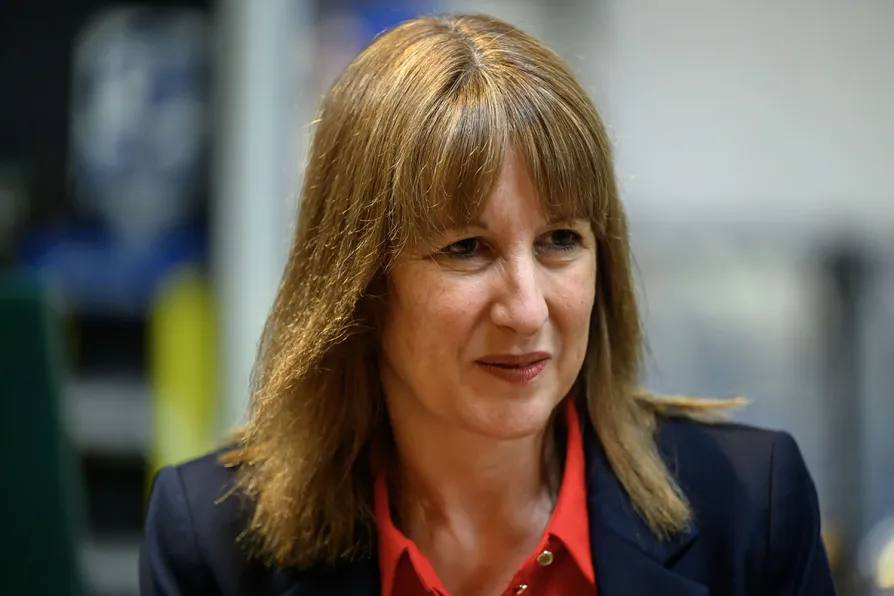
 Chancellor of Exchequer Rachel Reeves during a visit to the Sipsmith Distillery in Chiswick West London, October 9, 2025
Chancellor of Exchequer Rachel Reeves during a visit to the Sipsmith Distillery in Chiswick West London, October 9, 2025
BRITAIN must brace for a misery Budget of tax rises and spending cuts, beleaguered Chancellor Rachel Reeves confirmed today as experts also warned of rising unemployment.
Ms Reeves alleged that the economic problems she is struggling with could be attributed to Brexit, as the government increasingly protests about Britain’s exclusion from the European Union, a pose with potentially far-reaching political implications.
She brought an end to weeks of speculation by confirming that tax rises will feature in her Budget, scheduled for the end of November.
However, she did not indicate where the burden would fall. Labour committed at the general election to not raise income tax, VAT or employees’ National Insurance, pledges now regarded as a straitjacket.
While there are other measures the Chancellor could announce, they would not be likely to raise as much cash. She has firmly set her face against a wealth tax so far.
Ms Reeves also indicated that spending cuts will be on the Budget agenda. Her drive to cut the welfare Bill through reducing benefits for disabled people was thwarted in the summer by a backbench Labour rebellion.
She told broadcasters while on her way to an international finance summit in the US: “Austerity, Brexit, and the ongoing impact of Liz Truss’s mini-budget, all of those things have weighed heavily on the UK economy.
“People thought that the UK economy would be 4 per cent smaller because of Brexit. We are undoing some of that damage by the deal that we did with the EU earlier this year.
“But there is no doubting that the impact of Brexit is severe and long lasting and that’s why we are trying to do trade deals around the world, US, India, but most importantly with the EU.”
Blairite Health Secretary Wes Streeting welcomed the opening up of the issue, saying: “I’m glad that Brexit is a problem whose name we now dare speak.”
Despite PM Sir Keir Starmer being a leading “remainer,” ministers have generally sought to avoid reopening the issue in recent years for fear of alienating Reform-inclined voters and other “leavers.”
Ms Reeves claimed that living standards were now rising and that “the economy is doing well.”
But she added, inevitably, that she would “never take risks with the public finances,” indicating that her fabled fiscal rules mandating falling public debt would stay in place.
Asked if tax rises were coming, Ms Reeves simply answered “yes” before adding: ”Of course, we’re looking at tax and spending as well.”
Leading think tank the Institute for Fiscal Studies (IFS) has claimed that the Chancellor will need to find at least £22 billion in the Budget because of weak growth, higher borrowing costs and spending commitments, which include the soaring military bill.
IFS director Helen Miller said that ”for Rachel Reeves, the Budget will feel like groundhog day” and added that the problems were of her own making.
Ms Miller acknowledged that spending cuts would be politically difficult and suggested sums could be raised from property taxes, inheritance tax and capital gains tax.
Analysis released by Barclays bank suggested that unemployment could rise to 5 per cent of the workforce next year as the economy struggles to grow.
The government’s main growth plan consists of repeated dilution of planning controls in the hope this will speed development, particularly of infrastructure projects.
It has brought forward last-minute amendments to the planning Bill presently going through Parliament to cut the time for judicial reviews of major planning cases, among other reforms which risk removing environmental protections and overriding local democracy.
Joan Edwards, of the Wildlife Trusts, said: “The Chancellor continues to fail to understand that a healthy natural environment underpins a healthy economy.
“These performative amendments represent neither a win for development or the economy, and promise only delay and muddle in planning and marine policy.”
And environmental lawyer Alexa Culver warned that ministers “could direct authorities to ignore real-world infrastructure and environmental constraints — like water shortages — to allow harmful development through that leaves local communities stranded.”










